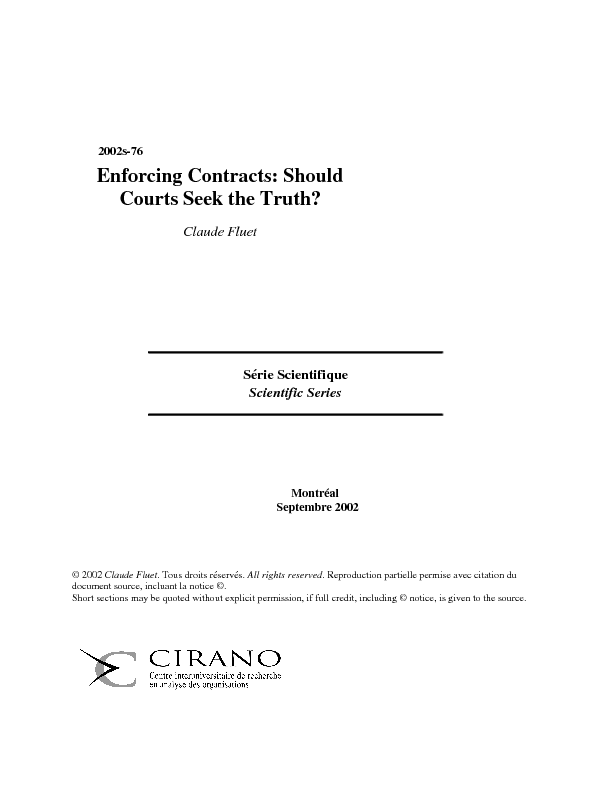Enforcing Contracts: Should Courts Seek the Truth?
I examine the case where fulfillment of a contractual commitment is only imperfectly verifiable and ask whether the court should then "tell the truth"" regarding the action in dispute. I show that truth seeking does not maximize the expected surplus from contractual relationships. From the parties' viewpoint, the enforcer should disregard some of the available information and should sometimes rule in favor of one party, even though his understanding is that the other party is most probably right. The analysis provides a justification for rules of evidence in common law and for the use by courts of neutral normative priors regarding contending claims."
[ - ]




